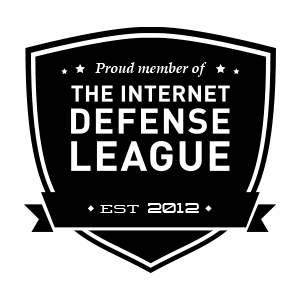Forum Replies Created
-
AuthorPosts
-
August 23, 2024 at 3:24 am in reply to: Complete scan status seems to be OK, but still have malware in my site #134550
That’s great! I’m glad that you were able to find the cause of that redirect, but what is more concerning is how that WPCode plugin got on there. Did you install it or do you know how it got on your site?
August 22, 2024 at 2:13 pm in reply to: Complete scan status seems to be OK, but still have malware in my site #134485I don’t see the redirect from my end, even on my mobile. Can you provide the exact steps to recreate this redirect?
Please also check these steps on another device to make sure it’s not just a caching issue on your device.
If you have already resolved this issue then please let me know how you fixed it.
This is not your error_log file at all, this is just an SQL Export file with some records from your database.
After looking at your website I can see that the following comment is present in every single out page on your site, including all the admin-ajax.php generated JavaScript pages like the one that my own plugin uses for the brute-force login protection:
If you can find the rogue file on your server that contains this comment text then you can remove that comment to fix all the dynamic JavaScript on your site that is currently breaking, including my login protection.
If you cannot find it and you would like to give me access to your site then I can look for it too. Please email me directly if you want to pass on any sensitive data.
eli AT gotmls DOT net
That is very unusual. We will need to know what the error is in order to fix it. Can you please check the error_log files on the server to see what the last few errors are?
Most of the files that are skipped will be binary file types like images that do not contain executable code so they are not a threat. You can hover over the files listed to see the reason why each one was skipped.
I have just added this new threat to my definition updates. Please download the latest definition update and try the Complete Scan again.
Let me know if that works for you or if you need more help.
I can see the redirection on your website, but it seems not to be detected by any of your malware plugin, not even mine, correct?
If this is not found in your core files after you latest scan then it must be a new threat which is yet undiscovered by any of us Anti-Malware specialists.
I would like the opportunity to find this new threat if you are willing to grant me access to your site. Please Contact me directly via email with any credentials you are willing to share.
You don’t need to donate for my plugin to clean any Known Threats that are found. Are you saying that no Know Threats are found when you run the complete scan in my plugin?
All these results from Quttera are a bit ridiculous, and most of them are clearly False Positives, but if you want to know more about the details of those results you should be asking them not me. There is not enough relevant information in Those results for me to make any real determination about those files without seeing the whole contents of each file.
I can’t speak for Wordfence or Sucuri either, but if you want to share the results of the Complete Scan using my plugin then perhaps I can give you more suggestions.
Thank you for posting this reply. I did not see your email until this post prompted me to check my spam folder. Now that I look at your website I can find no trace of this threat that you have asked about. Have you perhaps already found and removed it? Can you tell me where it was found and how you were able to remove it? Also, if you still have a backup of the infected content is there any way that you could share it with me so that I could still get this added to my definition updates?
Unfortunately the current scan engine can only be invoked and render results with an active browser session. I am working on a new scan engine that will be able to store results and would then be able to be scheduled but there are quite a few steps to take before that change will be possible. I will surely let you know when I have a Beta version available for testing.
I would like to add this definition right away, however I will need to see more than just a snippet of the code if I am to do anything meaningful with it. Can you please point me to the full source code in question?
I link to the infected page will do, if it is still showing the infected script, or else please send me the entire text from the source code of the page so that I can see how and where it is embeded and ensure that I can identify ALL of the malicious code and not leave behind any broken or partial code that might otherwise cause a syntax error on the site when only partially removed.
You can email me directly if you do not to devulge any personal information on this forum.
If you copied infected files from one website into the directory structure to another site then you may have copied the source of the infection, or the back-door/vulnerability that caused the infection, onto this new site.
There is no Software/Firewall that can protect your website from an infection that is placed there by a system admin.
To help you sort out this issue and find the active cause of this infection I would need to see the files on the infected site(s). Can you send me a link to the websites that are currently not working and maybe include the error_log files from the server?
You can email me directly with any private or otherwise sensitive data: eli AT gotmls DOT net
It really won’t do any good to scan a ZIP file since there is no executable PHP code in the compressed binary ZIP. Those ZIP files would have to be uncompressed first so that you could then scan the non-binary text in the files that might contain executable code. If there is malicious code or an exploitable vulnerability on your website then it is far more likely to be something that is new and just has not been documented yet.
The best way to find the source of this infection is to pin down the exact time that the infection occurs and then check you log files to see what scripts are access at that time.
With database injections it is more likely to be some kind of exploit of an un-patched or unknown vulnerability, and it also quite possible that the script responsible for this exploit is not even on the site that is being injected. Any other infection or otherwise compromised website on the same server could easily be used to inject malicious content into your database server for any other website on this host.
Thank you for sending me those files. I have confirmed that these are in fact False Positives, and I have just released a new definition update that fixes this pattern so that these files will no longer be detected as Known Threats.
Please download the latest definition updates and confirm that those files are no longer flagged in your your next scan.
-
AuthorPosts

